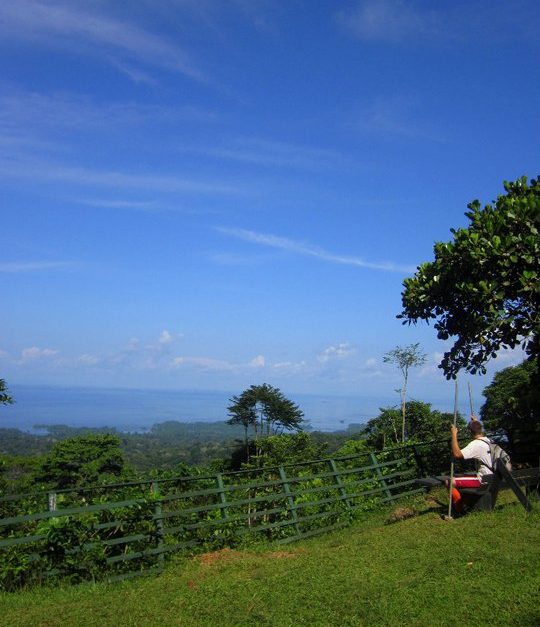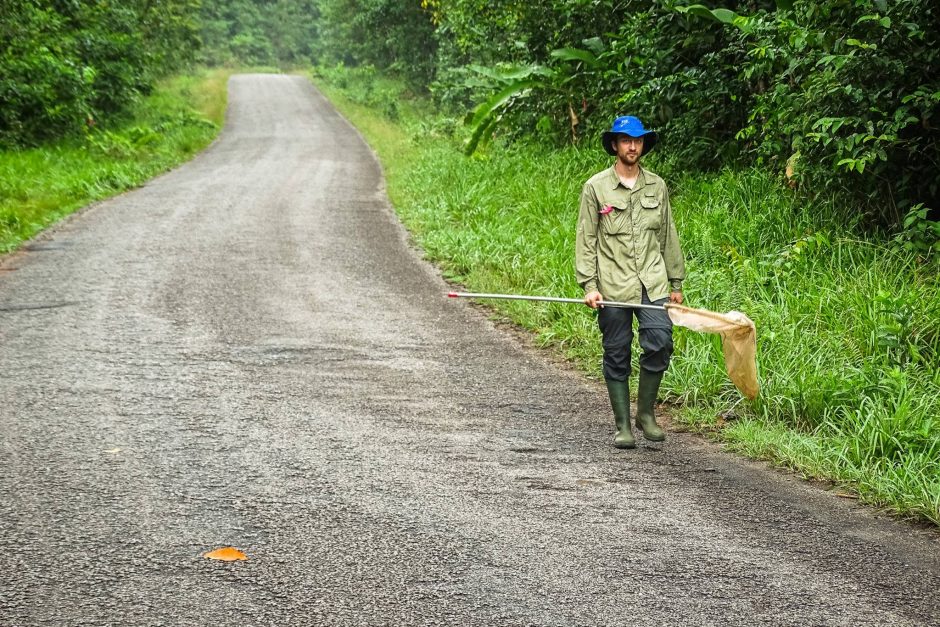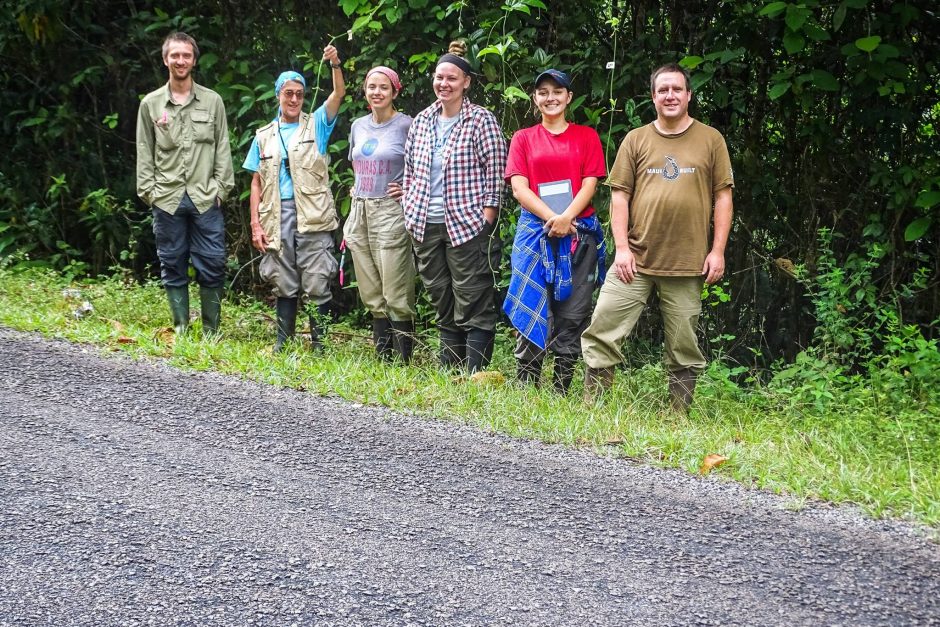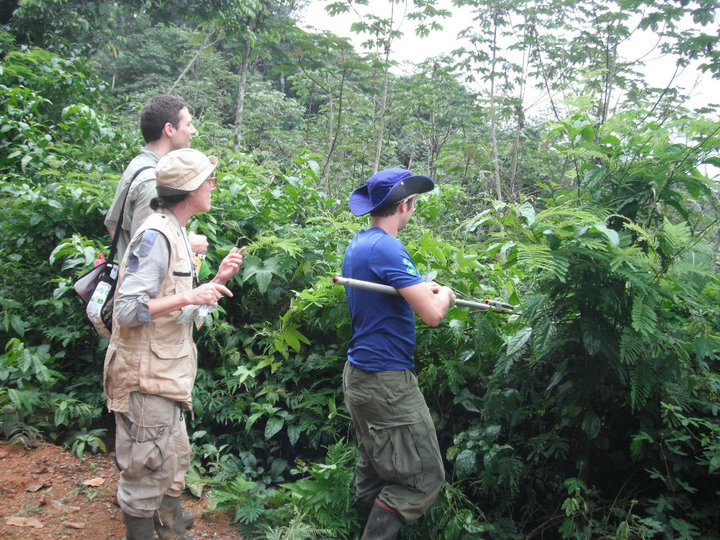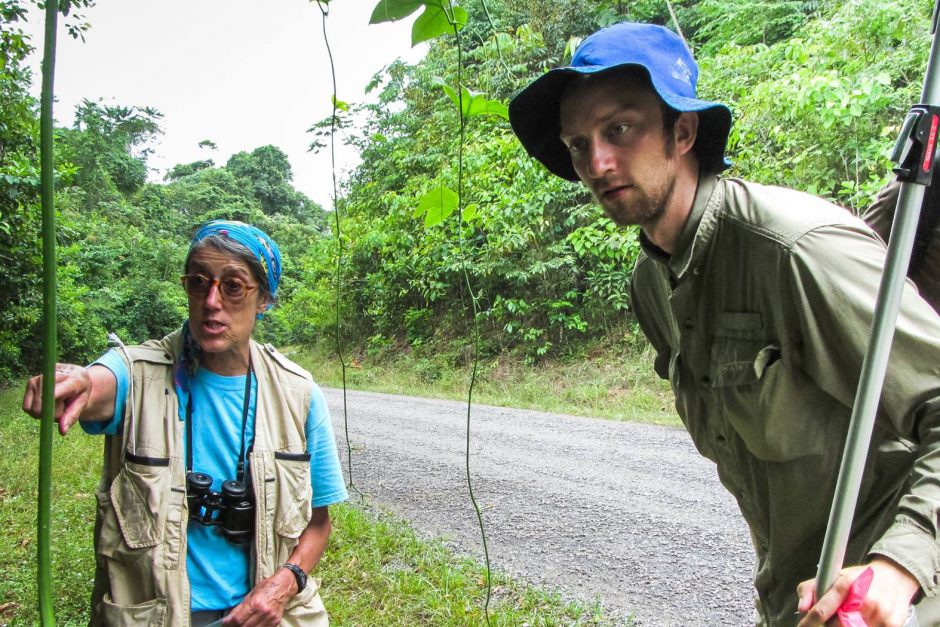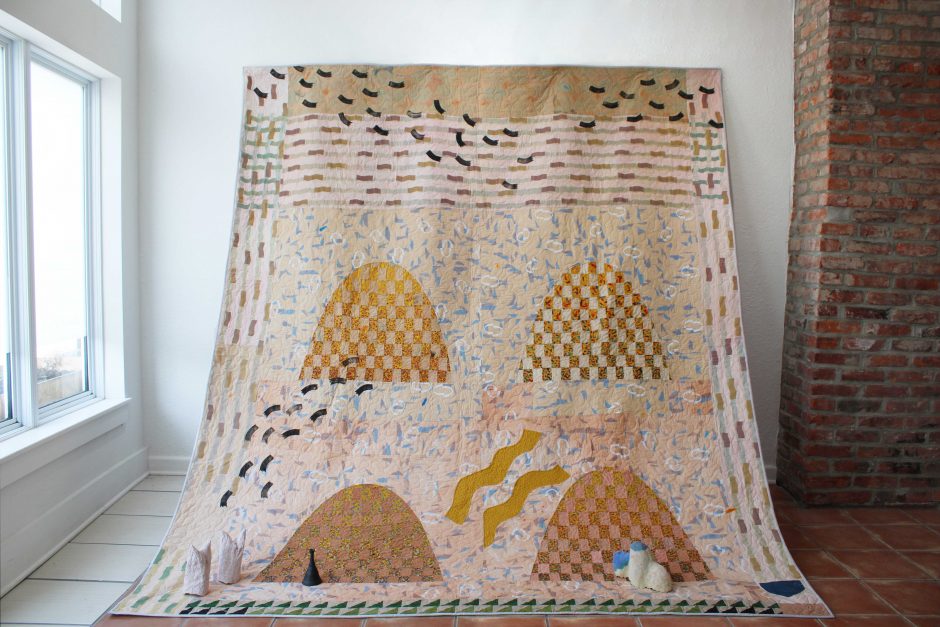Years later, alumnus is still researching
Even though Cornell College alumnus Andrew Rasmussen ’10 graduated six years ago, he’s still working on homework of sorts.
This “homework” is fascinating to the young researcher. From exploring tropical rainforests to meeting scientists from around the world, Rasmussen is working as field research coordinator for a project led by Professor of Biology Marty Condon.
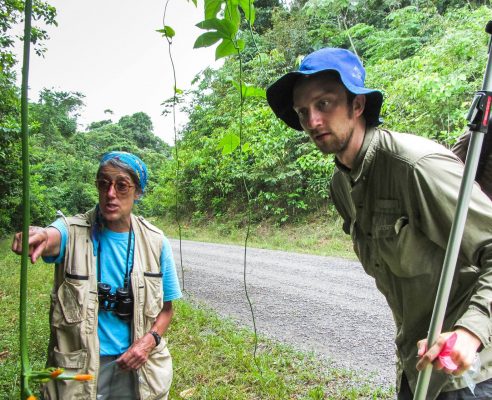
They’re both trying to discover answers to their questions revolving around the biodiversity of a newly discovered species of flies in Central and South America.
“The research we’re doing is revealing some interesting evolutionary patterns,” Rasmussen said. “A big thing to take away from our work is there’s still a massive number of undiscovered species, and extra diversity may be hiding where you wouldn’t expect it.”
Rasmussen first went on a research trip to Peru with Professor Condon his sophomore year of college—in October of 2008. Since then, he has made a lot of memories in the many countries he has visited.
“In Ecuador, Peru, and French Guiana I visited research stations to search for and photograph the plants involved in our study,” Rasmussen said. “In Colombia, I scouted out a somewhat remote location before meeting up with Professor Condon to explore another area, together with a Colombian collaborator who specializes in butterflies. Trinidad was a unique trip since I could apply for collection and export permits when I arrived. That allowed me to not only search for, but to collect the flowers of the plants I found, rear the young insects as they emerged, and export them back to the states for analysis.” 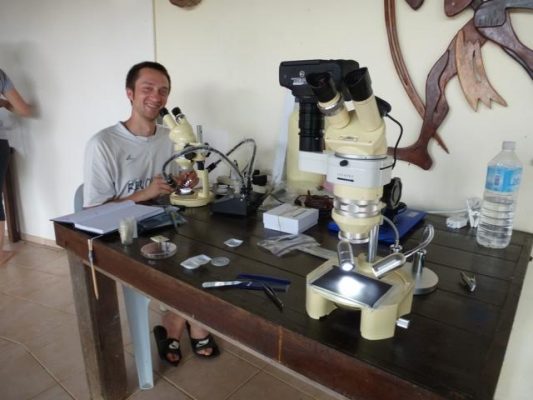
The research focuses on the most diverse groups of organisms on the planet: herbivorous insects, their parasites, and their microbes. It targets three groups of organisms including plants in the pumpkin/cucumber family, true fruit flies that attack the plants, and parasitic wasps that kill the flies. The project especially focuses on the newly discovered species of flies.
“These flies occur throughout the American tropics,” said Professor Condon. “It is a group of flies that is incredibly diverse. Just about all of these species look alike, and they are doing things that species aren’t supposed to do. That’s interesting.”
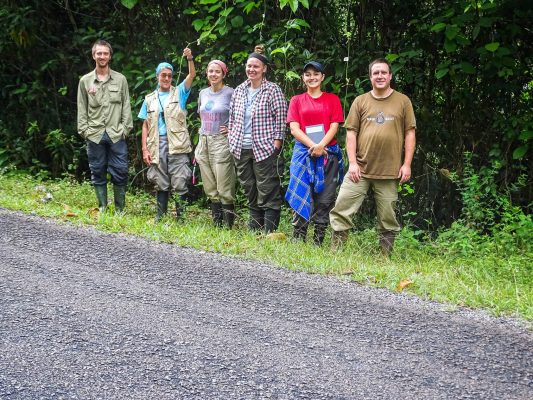 Rasmussen and Condon work with many current students too. Undergraduate research is a big part of this project, and many students over the years have been involved in helping Professor Condon continue her research.
Rasmussen and Condon work with many current students too. Undergraduate research is a big part of this project, and many students over the years have been involved in helping Professor Condon continue her research.
“An important aspect of our research is scheduling trips when the plants we collect are in flower,” Rasmussen said. “To figure out those times, I’ve been traveling to Latin America searching for plants and visiting research stations where we might want to bring students. I also talk with scientists from various countries to figure out the legal process for conducting research, and I meet with potential international collaborators.”
The field research coordinator said his time at Cornell played a big part in his success. He started working for Professor Condon in the the fall of 2015.
“From a professional standpoint, both my biology and Spanish degrees have been extremely useful in the years since I graduated,” Rasmussen said. “I also enjoyed my courses in history, geology, and anthropology, among others. I think the broad range of classes at Cornell introduced me to more perspectives than I may have experienced otherwise.”
The alumnus is currently planning to start preparing permit applications for the countries where student groups will continue their research in coming years.
Rasmussen’s position is funded by the $1 million National Science Foundation grant that supports Professor Condon’s research.
Tags: biology

